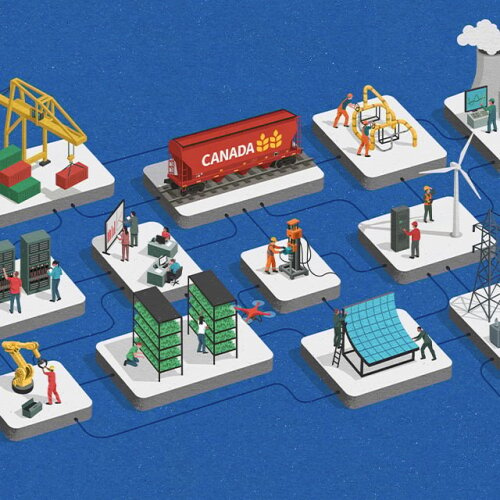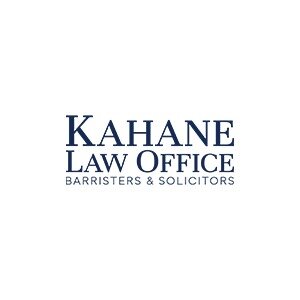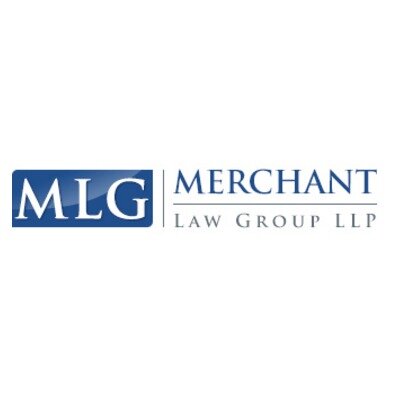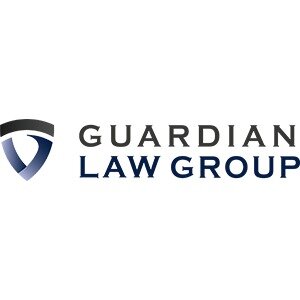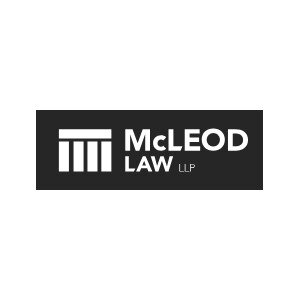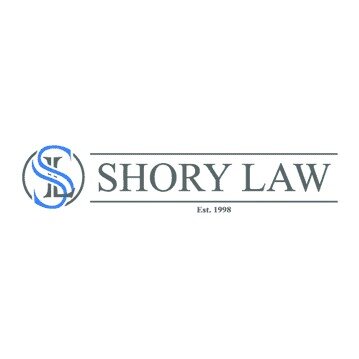Best Mining Law Lawyers in Calgary
Share your needs with us, get contacted by law firms.
Free. Takes 2 min.
List of the best lawyers in Calgary, Canada
About Mining Law in Calgary, Canada
Mining law in Calgary, Alberta is a specialized area that governs the exploration, development, extraction, and reclamation of mineral resources. Even though mineral rights and mining regulation are primarily under provincial jurisdiction in Canada, federal laws may also apply, especially when projects affect the environment, Indigenous lands, or cross provincial and national borders. Calgary, being a central hub for Canada’s energy and resource industries, is home to many companies, professionals, and legal experts involved in the mining sector. This area of law covers a wide range of activities, from staking and acquiring mineral rights, entering into joint ventures, and navigating approval processes, to managing environmental and social responsibilities.
Why You May Need a Lawyer
Legal issues in mining are complex and multi-layered, often requiring specialized expertise. Situations where you may need a lawyer include:
- Securing or transferring mineral rights or leases
- Navigating regulatory approvals and permitting for exploration and development
- Drafting and negotiating contracts and joint venture agreements
- Assessing and managing environmental compliance and potential liabilities
- Resolving disputes involving landowners, partners, or regulatory bodies
- Addressing First Nations consultations and Impact Benefit Agreements
- Dealing with project financing and securities requirements
- Ensuring compliance with occupational health and safety standards on mine sites
- Handling mine closure, reclamation, and remediation issues
- Responding to allegations of non-compliance or enforcement actions
Whether you are a prospector, mining company, investor, or landowner, a lawyer can help protect your interests and ensure you follow quickly changing laws and requirements.
Local Laws Overview
In Calgary and across Alberta, mining activities are primarily regulated under the provincial Mines and Minerals Act. The Government of Alberta owns most subsurface mineral rights and administers these resources through the Alberta Energy Regulator (AER), which oversees applications, licensing, and compliance for mineral extraction. Surface rights are handled through agreements with private landowners or public land regulations.
Significant local legal considerations include:
- Mineral Tenure: Acquiring rights to explore or extract minerals typically requires a license, lease, or permit from the province.
- Land Access: Surface access agreements must often be negotiated with landowners, or, if needed, through the Surface Rights Board.
- Environmental Regulation: Projects may require environmental impact assessments and ongoing compliance with provincial and federal environmental laws.
- Indigenous Consultation: Duty to consult with First Nations and Métis communities may be triggered and must be managed diligently.
- Operational Compliance: Regulations cover safety standards, reporting, rehabilitation plans, and site closure processes.
- Municipal Bylaws: Some mining operations may be subject to additional municipal requirements, depending on location and type of activity.
Federal laws like the Impact Assessment Act and Fisheries Act may apply, especially if projects impact areas of national environmental significance.
Frequently Asked Questions
What is the first step to obtaining mineral rights in Alberta?
The first step is to apply for a mineral licence or permit from the Government of Alberta, usually through Alberta Energy. Mineral rights are usually separate from surface rights, so additional agreements may be needed for land access.
Who regulates mining activities in Calgary and Alberta?
The Alberta Energy Regulator (AER) oversees mineral extraction and compliance in the province. Other ministries and federal bodies may be involved depending on the type, size, and location of your mining project.
What environmental regulations must be followed for mining operations?
Mining operators must comply with provincial environmental laws regarding air, water, habitat, and reclamation, and may also be subject to federal assessments, especially if sensitive areas or species are at risk.
Are Indigenous consultations required for all mining projects?
There is a legal duty to consult Indigenous communities if a proposed project could negatively impact their rights or traditional lands. Failing to consult properly can delay or stop a project.
Do private landowners have rights over minerals found on their property?
In most cases, mineral rights in Alberta are owned by the Crown, not by private landowners, even if they own the surface rights. However, there are exceptions for certain freehold minerals.
Can disputes over mining projects be resolved out of court?
Yes, many disputes, whether over surface access, royalties, or environmental issues, can be resolved through negotiation, mediation, or arbitration before legal action is considered.
What are common contracts used in mining projects?
Common contracts include mineral leases, joint ventures, engineering and construction contracts, supply agreements, and royalty arrangements. Legal advice is key to drafting and interpreting these agreements.
What permits are needed for mine development?
Typically, multiple permits and approvals are needed, including exploration permits, environmental clearances, water use approvals, and operational licenses from regulatory bodies.
How are mining companies held accountable for environmental damage?
Companies are required to follow strict reclamation and remediation rules. Financial security, such as bonds, may be required to ensure site restoration, and non-compliance can lead to fines, orders, or liability for cleanup.
Do mining projects need municipal approval in Calgary?
Depending on the size and location, municipal zoning or development permits may be required in addition to provincial and federal approvals, especially if urban or environmentally sensitive areas are involved.
Additional Resources
- Alberta Energy Regulator (AER): Oversees licencing, compliance, and regulation of mineral and energy resources in Alberta.
- Alberta Energy: Manages mineral rights, licensing, and public information about the mining sector.
- Alberta Surface Rights Board: Handles disputes related to land access and compensation between landowners and mineral rights holders.
- Canadian Institute of Mining, Metallurgy and Petroleum (CIM): Provides professional resources, training, and networking for the mining sector.
- Alberta Environment and Protected Areas: Information and regulations about environmental compliance for mining.
- Indigenous Relations, Alberta: Guidance regarding Indigenous consultation requirements and best practices.
- Environmental Law Centre: Offers publications and advice on environmental law in Alberta.
Next Steps
If you need legal assistance in mining law, here are some recommended steps:
- Gather any relevant documents, maps, permits, or correspondence relating to your mining interests.
- Clearly define your goals, whether it is obtaining rights, resolving a dispute, or ensuring compliance with regulations.
- Consult with a lawyer or law firm that has experience in mining law and understands both local and federal regulations.
- Prepare a list of questions and be ready to discuss the details and history of your project or issue.
- Stay informed about legislative changes, environmental requirements, and consultation obligations that may affect your operations.
Acting early and working with qualified legal counsel can help you manage risks and take advantage of opportunities in Calgary’s mining sector.
Lawzana helps you find the best lawyers and law firms in Calgary through a curated and pre-screened list of qualified legal professionals. Our platform offers rankings and detailed profiles of attorneys and law firms, allowing you to compare based on practice areas, including Mining Law, experience, and client feedback.
Each profile includes a description of the firm's areas of practice, client reviews, team members and partners, year of establishment, spoken languages, office locations, contact information, social media presence, and any published articles or resources. Most firms on our platform speak English and are experienced in both local and international legal matters.
Get a quote from top-rated law firms in Calgary, Canada — quickly, securely, and without unnecessary hassle.
Disclaimer:
The information provided on this page is for general informational purposes only and does not constitute legal advice. While we strive to ensure the accuracy and relevance of the content, legal information may change over time, and interpretations of the law can vary. You should always consult with a qualified legal professional for advice specific to your situation.
We disclaim all liability for actions taken or not taken based on the content of this page. If you believe any information is incorrect or outdated, please contact us, and we will review and update it where appropriate.



